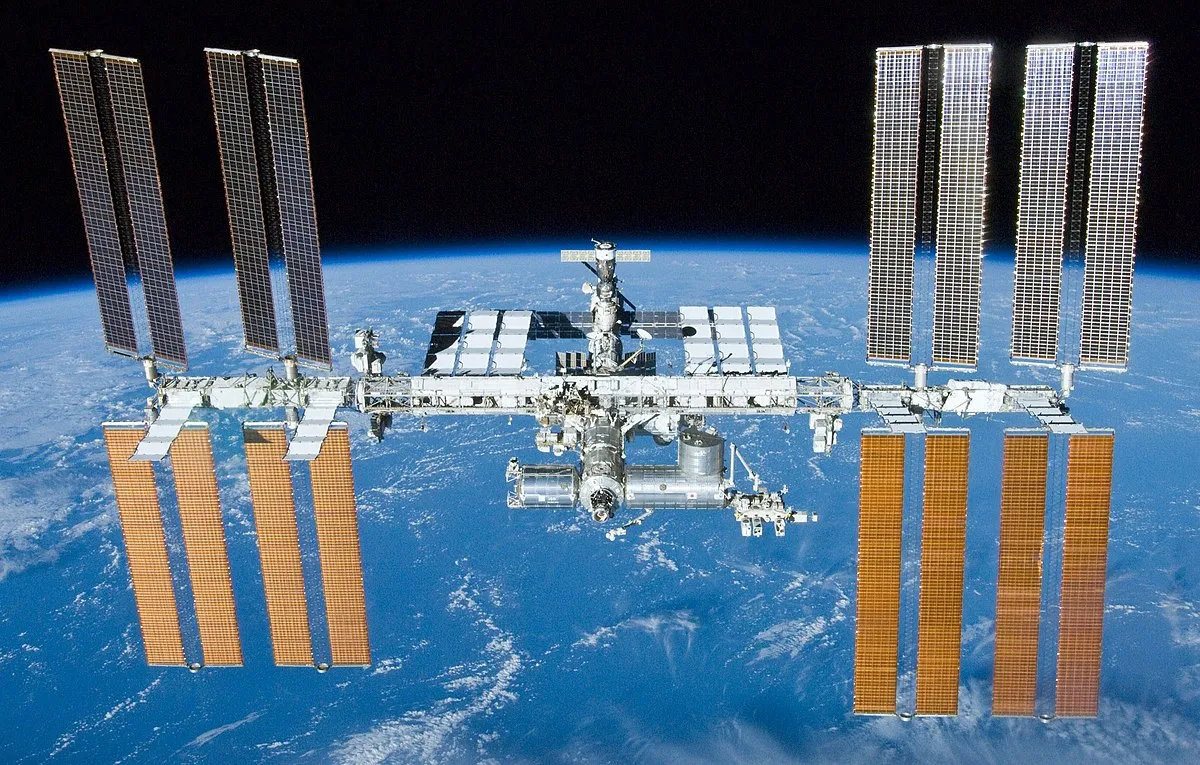
Boeing tests new anti COVID coating on Space Station
Feb 16, 2021

Boeing has initiated tests of a new anti-COVID coating aboard the International Space Station, aiming to enhance safety in confined environments. This innovative coating is designed to neutralize viruses on surfaces, potentially reducing the risk of transmission among astronauts and crew members. By utilizing advanced materials and technologies, the coating can provide a protective barrier that remains effective over time. The experiment not only addresses immediate health concerns but also explores the broader applications of such coatings in various settings, including hospitals and public spaces on Earth. Results from this research could inform future safety protocols in space exploration and beyond.
Boeing has made significant strides in the fight against COVID-19 by testing a revolutionary anti-COVID coating aboard the International Space Station (ISS). This groundbreaking initiative is part of Boeing's ongoing commitment to safety and innovation in aerospace technology. The introduction of this coating could have far-reaching implications, not only for space missions but also for various industries on Earth. Here, we explore the details of this project, its potential benefits, and the science behind the anti-COVID coating.
Understanding the Anti-COVID Coating
The "anti-COVID coating" developed by Boeing is designed to kill viruses and bacteria upon contact. This innovative solution utilizes advanced technology that has been rigorously tested to ensure its efficacy in high-risk environments. The coating is applied to surfaces that are frequently touched by astronauts aboard the ISS, reducing the risk of virus transmission in confined spaces.
The Testing Process Aboard the ISS
Boeing's testing process involves applying the "anti-COVID coating" to various surfaces on the ISS, including handrails, control panels, and seating areas. The unique environment of the ISS provides an ideal setting for evaluating the coating's performance due to its high level of sterilization and the limited space available for the crew. The effectiveness of the coating will be measured through various assessments, including:
| Testing Method | Description |
|---|---|
| Contact Kill Test | Evaluates the coating's ability to eliminate viruses upon contact. |
| Surface Stability Test | Assesses how well the coating adheres to surfaces over time. |
| Durability Test | Measures the coating's resistance to wear and tear in a high-use environment. |
Potential Benefits of the Coating
The implications of Boeing's "anti-COVID coating" extend beyond the ISS. Here are some potential benefits that could be realized if the coating is proven effective:
- Enhanced Safety in Space: The primary goal of testing the coating is to ensure the safety and health of astronauts during space missions.
- Applications in Healthcare: If successful, the coating could be adapted for use in hospitals and other healthcare facilities to reduce the spread of infections.
- Commercial Use: Industries that require a high level of sanitation, such as airlines and public transportation, could benefit from the application of this coating.
The Science Behind the Coating
The "anti-COVID coating" employs a combination of nanotechnology and antimicrobial properties designed to disrupt the virus's ability to replicate. By targeting specific proteins on the virus's surface, the coating effectively neutralizes the pathogen. This technology not only applies to COVID-19 but could also be effective against a range of other viruses and bacteria.
Moreover, the sustainability of the coating is a critical factor. Researchers are focusing on developing a formula that remains effective over extended periods without losing its potency. This durability is essential for applications where frequent reapplication is impractical.
Future Developments and Collaborations
Boeing's initiative to test the "anti-COVID coating" aboard the ISS is just the beginning. The company is looking to collaborate with various organizations and research institutions to further develop and refine the coating. By leveraging expertise in materials science and microbiology, Boeing aims to enhance the coating's effectiveness and expand its applications.
In addition, Boeing is exploring partnerships with companies in the healthcare and transportation sectors. These collaborations could facilitate the rapid deployment of the "anti-COVID coating" in environments where safety is paramount.
Conclusion
The testing of Boeing's "anti-COVID coating" on the International Space Station represents a significant advancement in both aerospace technology and public health. As the world continues to grapple with the challenges posed by the COVID-19 pandemic, innovative solutions like this coating are essential. With potential applications ranging from space missions to everyday environments on Earth, the impact of this technology could be profound.
As the testing progresses, the results will be closely monitored and analyzed to determine the coating's effectiveness. The success of this initiative could pave the way for a new era of safety in both space and terrestrial environments, making it a project worth watching closely.
Related Articles

Explore Thailand: The Best Islands to Visit for Paradise, Adventure, and Relaxation

The Ultimate Guide to the Best Islands in Thailand for Your Next Getaway

Do babies need passports? How to get a passport for a newborn

How to get a U.S. passport fast: here’s how to expedite the process

What is Mobile Passport Control: 5 reasons why you should use it

SENTRI vs. Global Entry: A detailed guide

Do you need a passport to go to the Bahamas? Let’s find out

Do you need a passport to go to Mexico? A detailed guide

Do you need a passport to go to Canada? We got the answer

Do You Need a Passport for a Cruise: An Essential Travel Guide

Booster Seat Requirements: All the Rules to Follow in Your Rental Car

What Are the World’s Most Powerful Passports, and How Does Yours Rank?

How to Take a Passport Photo at Home: A Helpful Guide

You've got to have heart! Southwest's new livery

Your opinion: Should water be free on low cost carriers?

Young women bolder than guys as solo travellers
